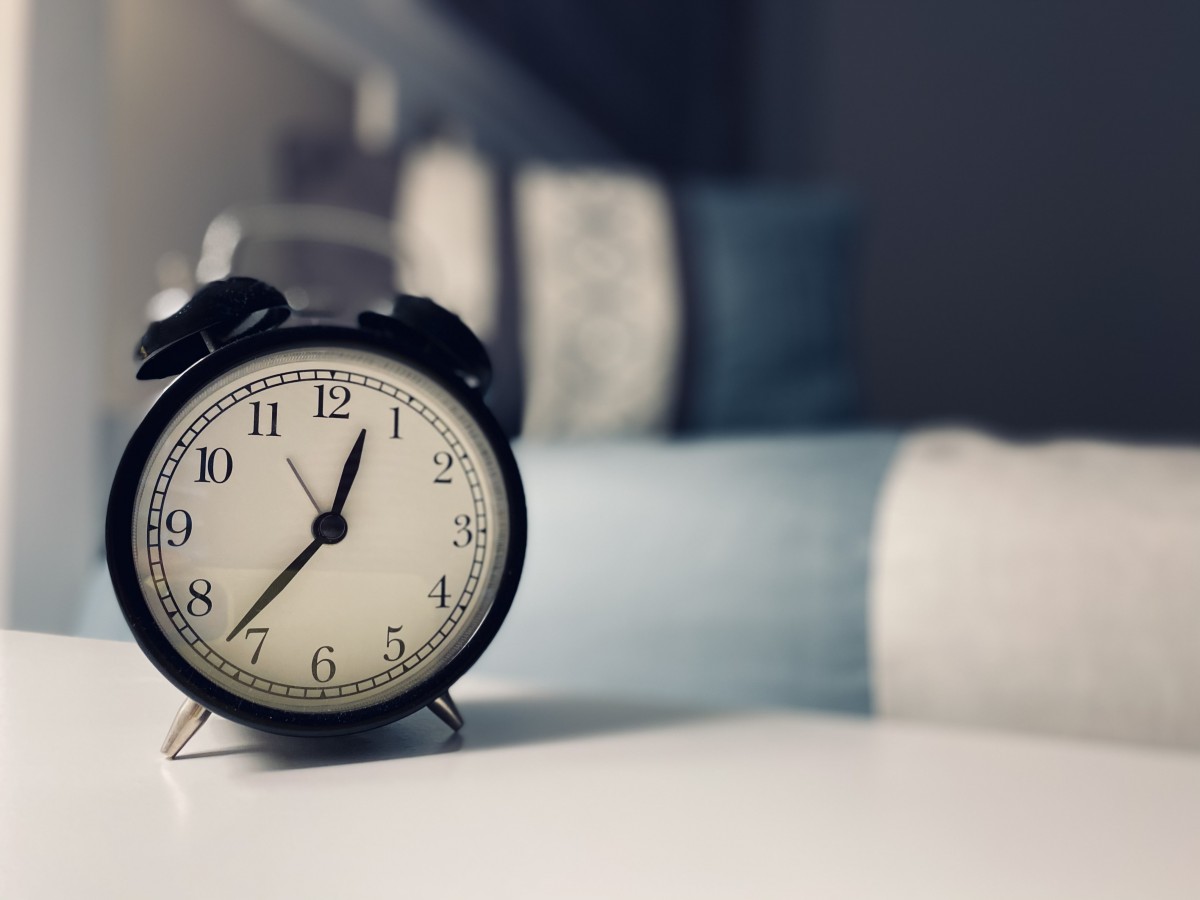Sitting at a desk late into the night with loads of homework to still complete might be a familiar scene among high school students. Being academically prepared and living a healthy lifestyle has been a juggle that students have struggled to balance for years.
One of the main ways students can ensure that they are both mentally and physically ready for the school day is to get a good night’s sleep. However, students can easily find themselves getting stuck in the cycle of staying up late and waking up early.
“Most of the time I go to sleep late to make sure I have finished the assignments for all my classes and then wake up early the next day,” junior Melanie Duenas said. “I feel like I have not been getting an adequate amount of sleep these past few weeks, especially since I now have to balance high school and college classes, but once I set a schedule for myself, I will be able to adjust to this new virtual school year.”
According to the CDC, those who are 13-18 years old need to get 8-10 hours of sleep each night. Getting a sufficient amount of sleep contributes to our health by strengthening our cognitive abilities and preventing diseases.
“I get about 8 hours of sleep on the weekends, but on school days I usually get 5-7,” sophomore Kenza Allen said.
Established sleep cycles are especially important for high schoolers because the teenage years are a period of development for the brain, and sleeping can help maintain mental and emotional health.
According to the Sleep Foundation, attention spans, memory, and analytical thoughts are all dependent on the amount of sleep we get. Students can think sharper and recall more information when they are well rested. All of these factors play an important role in building a strong foundation for education.
“The amount of sleep [I get] does affect my school performance,” Allen said. “When I get less sleep I notice that I’m too tired and unmotivated for confusing assignments.”
Rigorous academic courses sometimes cause students to delay going to bed because of lengthy assignments.
“There are days when I have slept less because I was working on an assignment,” Duenas said. “With fewer hours of sleep, the next day feels a bit sluggish and I have to put effort in my concentration. Sometimes, all I want to do is curl up in bed, but I know I have to complete my work for the day.”
Those who sleep less have shown increased drowsiness and a lack of focus, which has the potential to significantly lower grades.
“If I sleep less then I usually cannot concentrate and focus on my schoolwork, and I have trouble studying for my tests,” a sophomore, who preferred to stay anonymous, said. “I’m less productive.”
Along with strengthening your immune system and reducing the risk of high blood pressure, sleep is also responsible for your emotional health, since it greatly affects your mood. Sleep loss can lead to poor emotional reactions, which in turn increases the likelihood of conflicts. Anxiety, depression, and other mental health disorders have been commonly associated with negative sleep habits.
Some students have already experienced the effects of sleep deprivation and decided to change its course.
“I wasn’t feeling energetic and active,” a sophomore said. “I was wondering why I was feeling so tired. So I looked up how to get more sleep and I just started exercising more.”
Students have various strategies to create a healthy sleep cycle, and many have found that following simple tips can lead to better rest.
“If I can’t fall asleep, I usually try to read before I go to bed to get myself more rested and into the mood,” Allen said.
“Sometimes when I go to sleep, I have trouble shutting myself down and falling asleep,” a sophomore said. “It depends on what I do to stop myself from feeling anxious before I go to bed. If I don’t feel anxious, then I get better sleep and feel more restful the next day.”
Managing your time and organizing assignments is one of the best ways students can get more sleep each night.
“I go to bed at a specific time, even if I still have homework to complete,” a sophomore said. “I try to divide my homework, so as soon as I get my assignments I start doing them. It’s worth it to go to bed early rather than staying up late doing homework because you will benefit more in the long run.”
Staying academically prepared and caring for our health go hand in hand, and balancing both of these allows students to live up to their full potential.
“Students need enough sleep in order to clearly focus and understand the work assigned to them,” Duenas said. “Without enough hours of sleep, the body feels like it wants to shut down throughout the day, which affects the productivity and effectiveness of a student’s ability to complete academic and extracurricular activities.”






